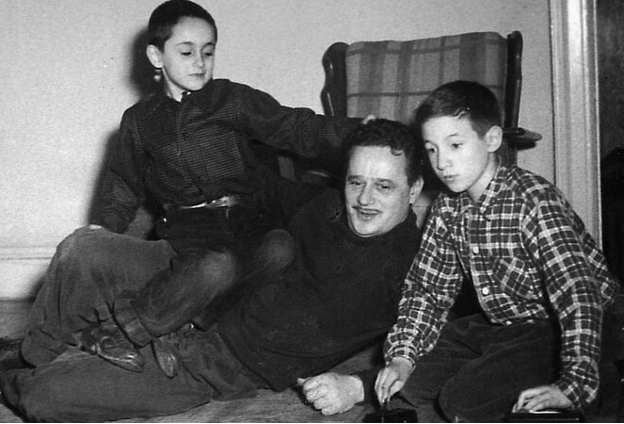By Norah Christianson
Strange Fruit
Abel Meeropol
Southern trees bear a strange fruit
Blood on the leaves and blood at the root
Black bodies swingin’ in the Southern breeze
Strange fruit hangin’ from the poplar trees
Pastoral scene of the gallant South
The bulgin’ eyes and the twisted mouth
Scent of magnolias sweet and fresh
Then the sudden smell of burnin’ flesh
Here is a fruit for the crows to pluck
For the rain to gather, for the wind to suck
For the sun to rot, for the tree to drop
Here is a strange and bitter crop
“Strange Fruit” is a stark and brutal picture of the lynchings of black people. Abel Meeropol wrote this poem in 1937. It was first published in the journal “The New York Teacher.” (Meeropol was a teacher in the Bronx.) He then set it to music as a protest song against racism and lynching. It was performed—as a protest song— in the late 1930’s in New York venues, including Madison Square Garden. “Strange Fruit” became the anthem for the anti-lynching movement.
In the poem/song, Meeropol contrasts the horror of lynching—the ‘bulgin’ eyes and the twisted mouth”, the ‘burnin’ flesh’ —with the pastoral, “gallant” South and it’s “sweet” magnolias. We wince at the poem’s graphicness. We weep when we hear Billie Holiday sing it.
Billie Holiday was singing at the Cafe Society, the first integrated nightclub in New York, when she was first introduced to the song. Despite her fear of retaliation (with good reason), she went ahead and and recorded the song in 1939. (Columbia, her recording label, refused to record the song, fearing backlash. Holiday finally recorded it on the Commodore label.) And retaliation did come. Meeropol was harassed and Holiday was terrorized by the U.S. government.

The government grilled Meeropol at a communist-catching investigation, accusing Meeropol of accepting money from the Communist Party for writing “Strange Fruit.” (He did not.) Meeropol was a communist (from 1932 to 1947), as were many New York teachers and intelligentsia then. Early on, American Communism was extremely concerned with civil rights.
A certain racist, Harry Anslinger of the Federal Bureau of Narcotics, made it his mission to destroy Billie Holiday in order to stop her singing about racism. Anslinger had his agents sell her heroin, for which she was sent to prison for over a year. This essentially ended her nightclub career, since she was also stripped of her performer’s license. After that, however, she did manage to perform here and there at concert venues, including Carnegie Hall. In 1959 Holiday was hospitalized with heart and liver problems. Anslinger stalked her to her deathbed, forbidding doctors to treat her and ordering his agents to handcuff her to her bed. She died a few days later. She was 44.
Merropol, a poet and a social activist, was the child of Russian Jewish immigrants who had fled the pogroms in Russia. He knew about persecution. After earning a B.A. from City College of New York and an M.A. from Harvard, Meeropol taught for 17 years at Dewitt Clinton High School. After his teaching career, Meeropol turned to song writing. He published under the name of Lewis Allan, the names of his two baby sons who were stillborn. He wrote, among other songs, the Frank Sinatra hit, “The House I Live In,” and “Apples, Peaches and Cherries,” the song Peggy Lee made famous.
“Strange Fruit” took great bravery to write and enormous bravery to sing. Abel Merropol and Billie Holiday, two courageous souls, were the voices of the early, early civil rights movement. They should be honored during Black History Month as the warriors they were for working to combat racial inequality.
★A footnote: Here is a largely unknown and wonderful fact about Abel Meeropol. After Julius and Ethel Rosenberg were executed for espionage, their two young sons—Michael, age 10 and Robert, age 6—were orphaned. People, including their aunts and uncles, were fearful to have the boys in their homes because of the virulent hate spread by McCarthyism. The boys were seen to be tainted by the legacy of their parents. (Brings to mind: “The sins of the fathers are visited upon the children.”) The boys bounced around until Abel and Ethel Meeropol took them in, intending to adopt them. Learning this, conservative groups falsely accused the Meeropols of “politically abusing” the boys. Armed police came to the door, removed the boys and put them in the Hebrew Children’s Home—an orphanage. The Meeropols eventually won the custody battle, and Abel and Ethel were able to adopt the boys as their own. Michael became an economist, author and activist, teaching at Western New England College for 38 years. Robert, also an activist, taught anthropology at Western New England College. Later he was admitted to the Massachusetts Bar and began practice as an attorney.
Two beautiful boys saved by the Merropols.



WOW Thank you Norah. The poem is important and your contextualization is incredible.
Norah- this is a history that I had no idea about and appreciate your background on.